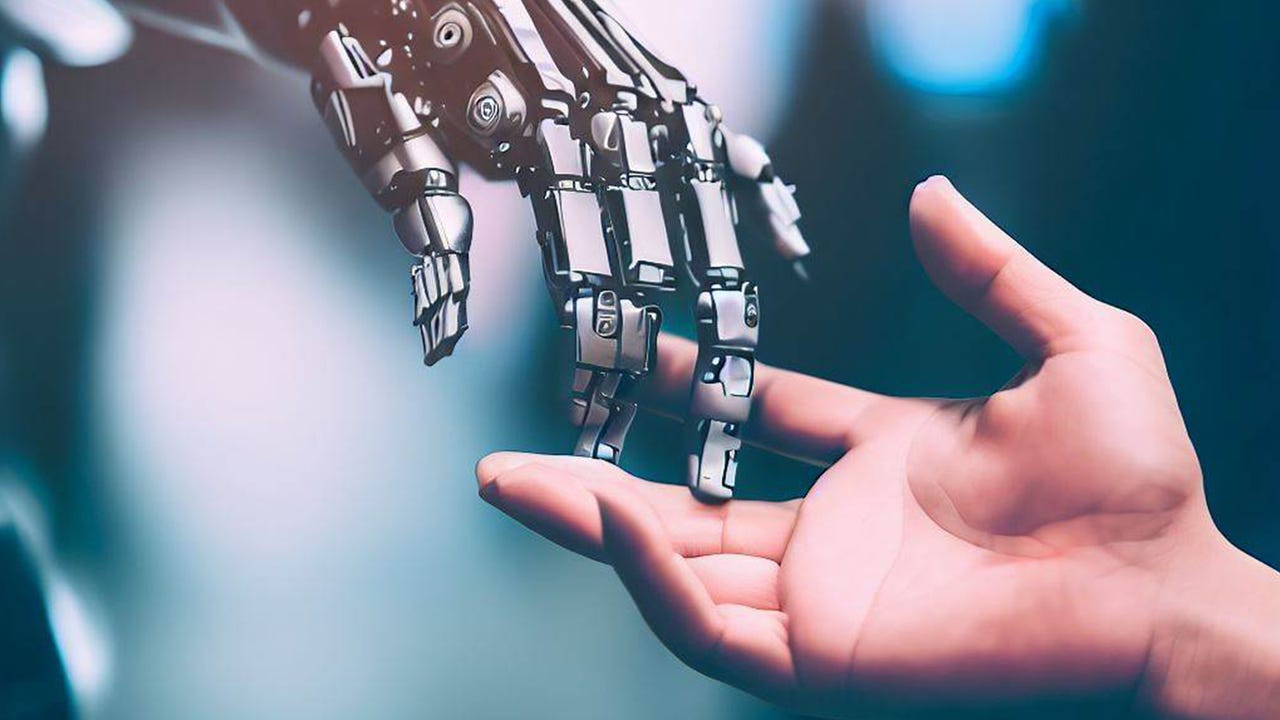Does AI benefit humans?
By Benedict Lam

Artificial Intelligence (AI) is a piece of technology that has caused controversy around the world. Although AI has many potential benefits for humans, it has equally as many potential risks. To understand AI's advantages and disadvantages, we need to know what it is and how it is applied.
AI is a simulation of human intelligence processes by machine and computer systems. It can be applied in many ways, such as healthcare, industry, education, and entertainment. AI can use large datasets in healthcare to give us more accurate and reliable information to cure people. In heavy industry, AI can help us do repetitive and dangerous tasks. AI can also help humans in education by streamlining research processes. In entertainment, AI improves the realism of 3D game models. AI is destined to change our society, but will it be good or bad for our world?
Importantly, artificial intelligence can help humans and save lives. For example, AI was instrumental during the COVID-19 pandemic. Using algorithms, it created meaningful insights to help fight the virus. AI won’t just help us in COVID-19, I also did help us in our daily life. One example is the accidents in traffic.
According to the Hong Kong Transport Department, there were 15,107 traffic accidents in 2022. Of these, 89 were fatal. This problem has been endemic for decades with no solution in sight — until the recent developments in AI. As self-driving cars become more and more reliable, they increasingly pose as a plausible way to stop driving accidents. Since AI drives cars with rigorous computation algorithms, it can make the possibility of accidents nearly impossible. As these accidents reduce, the pressure and the workload on police and medical staff can be minimised.
Although AI can improve our lives, some think that AI may cause potential crises. They believe that AI will be much more advanced because it learns by processing massive amounts of data and self-improvement. This allows it to learn many skills that only humans could do in the past, such as driving cars, building infrastructure, and serving in restaurants. There is a potential threat of mass unemployment from this — research even suggests that AI will take 85 million new jobs by 2025.
Additionally, if AI is ever given power over major decision-making, it can cause harm due to its proneness to bias. As AI is a simulation of humans, it will always be biased towards the opinion of the material it simulates. If AI is used to run large societal structures, it can result in poor decisions that hurt individuals and communities.
Even when used to fulfil smaller roles such as legal work, there is still a possibility of harm. When AI aids with tasks such as document analysis, contract review, legal research and predictive analysis, the same biases will apply and can affect decision-making in the legal sphere. At a high level, this can lead to misrepresentation and unfairness in the criminal justice system.
It’s clear that artificial intelligence can help us develop and innovate society, but it also has the potential to negatively affect our lives. But as long as we don’t give AI too much power and only use it where it’s safe, we don’t need to be afraid of it replacing us or hurting our lives.